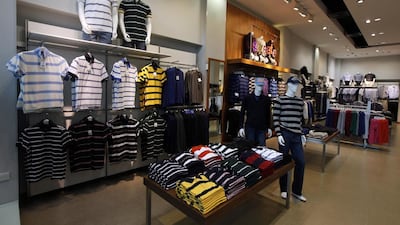Cameras. They are everywhere. They help keep people in check, and sometimes, are viewed as an intrusion on privacy such as the latest story of cameras being fitted into the changing rooms of a gym franchise in the UAE. People tend to forget there are cameras in most changing rooms of retails places at the malls and even at hotels and their rooms. The closed-circuit television cameras and other surveillance gear are important in solving crimes, like a few years ago the high-profile cases of the murder of Lebanese singer Suzanne Tamim in her apartment and the assassination of senior Hamas official Mahmoud Al Mabhouh in a hotel room.
For the places that don’t have CCTV cameras, a camera from a hand-held smartphone could come in handy. They can capture someone hurting someone else, like the Emirati teen who killed a cat by throwing it against a wall, to this week’s latest viral video of a baker spitting on dough as he bakes.
A video taken of a baker in Saudi Arabia’s Al-Ahsa city went viral on social media, and the person who took this video notified authorities after seeing food being spat on.
According to news reports, the baker in question has been detained, has undergone medical tests to check his overall health, and the shop itself has been closed until further notice.
How long was this baker doing such things before someone caught him on camera?
This sparked discussions of how do you actually know what happens in the kitchen or the cafes and restaurants we all like to eat at? If there is no camera and no accountability, who knows what happens behind closed doors. Users started asking things like: if the cook drops the food, is it thrown away or simply put back on the plate? And sure, they wear gloves, but how often are the gloves changed?
One particular “bad habit” mentioned by many social media users discussing the baker was “nose-picking”. We see them around, and some are shameless for they don’t even stop if you stare at them in disgust.
If one was to start thinking about it, one could go crazy with the possibilities and develop anxiety disorders over the infections, dirt and unhygienic mannerism of those around them.
I have a friend who walks around with a sterilising spray she uses on door handles and other public structures she may have to touch or use.
I am sure everyone at some point had found a bug or hair or even a first-aid plaster (I did) or some sort of foreign object in their food.
One time, at a very fancy restaurant in Dubai, I found a caterpillar and two flies in a salad, while the flies were dead, the caterpillar continued to munch on the leafy greens.
After notifying the waiter and the chef had come out and expressed his “shock” and how this has “never” happened before, I released the caterpillar into the garden of that restaurant for it to continue its feast. It wasn’t its fault it ended up in an “exotic” salad.
Would cameras in food related outlets help improve hygiene standards? I always wonder who actually sits and watches the CCTV videos at the end of the day. I would imagine one reviews them once something has happened and looks for who did it and when.
In my building, I recently caught one of those persons who hand out those terrible “massage” cards, often with a half naked woman photo next to the number, and while he ran away, the guards were able to review the cameras and will be on the look out for him. So cameras do come in useful.
What stories like this do is to make us reflect on what should be under surveillance and what shouldn’t, and how we reach a balance between safety and privacy.
rghazal@thenational.ae
On Twitter:@arabianmau

